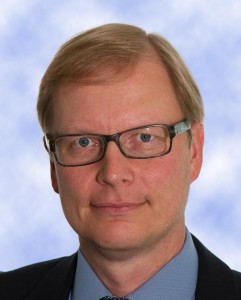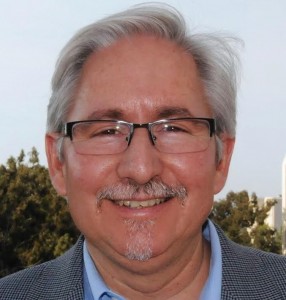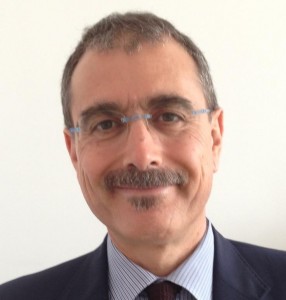Keynote I: “When Cloud is not enough – Experiences from Cloud Software program”
Janne Järvinen
F-Secure Corporation | Helsinki, Finland
August 27th, 2013
Abstract – Cloud is a major paradigm shift for all of us in many ways. Often it is considered that going to Cloud involves only technical aspects relating to Cloud Computing. In the Finnish industrial driven research program Cloud Software the approach has been multifaceted including Cloud Business, Cloud Technologies and Lean&Agile Software Enterprise as major building blocks for the Cloud transformation. Janne Järvinen will explain the Cloud Software approach in his keynote speech and will share related experiences of the Cloud Software consortium and his company, F-Secure.

Author Bio – Janne Järvinen is Director, External R&D Collaboration at F-Secure Corporation. He also leads the national four-year (2010-2013) Cloud Software programme (under Tivit Oy – the Finnish strategic center for science, technology and innovation in the field of ICT). Janne Järvinen has over 20 years of experience in software engineering and software process improvement. He has work experience from various positions in software industry from programmer to VP Engineering in small and large software companies. Additionally Järvinen has been active in academia in various research programmes such as European ESPRIT(BOOTSTRAP, PROFES) and ITEA (MOOSE, MERLIN, FLEXI). He holds a PhD in Information processing science from University of Oulu (2000).
Keynote II: “Awareness, Trust, and Software Tool Support in Distance Collaborations”
David F. Redmiles
Institute for Software Research and Department of Informatics
University of California, Irvine USA
August 28th, 2013
Abstract – Globally distributed, software development poses many challenges to those involved. Often developers or even whole teams work in isolation and subsequently must integrate results, usually with the aid of collaborative technologies. Developers may never meet their distant partners but still need to rely on them and coordinate with them. In this talk, I will cover a number of research results involving distance collaborations. The results are principally centered around the themes of awareness, trust, and software tool support. Some of the results are surprising or, at the least, non-intuitive. For instance, there is evidence that knowing personal information about a collaborator can be as valuable as knowing their expertise. Other results contribute details to our understanding of collaboration. For instance, trust can be framed as a dynamic process and when trust is lost, an adjustment of expectations can lead to its reestablishment and productive collaboration. Software tool support for awareness and trust shows promise. For instance, tools can be demonstrated to have a definite, positive effect on collaborators’ awareness of one another’s activities and work situations and, consequently, improve a sense of trust among collaborators. Yet, positive evidence for tool support can be countered by negative attitudes about innovative, social tools. Tool usage beyond adoption also requires the alignment of organizational factors. These examples are just a sample of results I will cover. In general, I hope to excite the audience about this fascinating line of research and to inspire others to investigate awareness and trust further and integrate their findings into software tools.
 Author Bio – Dr. David F. Redmiles is a Professor in the Department of Informatics in the Donald Bren School of Information and Computer Sciences and a member of the Institute for Software Research (ISR) at the University of California, Irvine (UCI). He is the author of over 100 research publications in the areas of software engineering, human-computer interaction, and computer-supported cooperative work. His current research focuses on distributed and collaborative software engineering, especially the aspects of awareness and trust among collaborators. His research group builds systems and performs quantitative and qualitative studies. Many of these studies take place at large corporate and governmental organizations. For many years, Dr. Redmiles was involved in the IEEE/ACM Conference on Automated Software Engineering, serving on the steering committee and organizing the 2005 conference as General Chair. That research community designated him Fellow of Automated Software Engineering in 2009 and in 2010 awarded him and his co-authors the first Most Influential Paper Award for their 1996 paper on software design environments. In 2011, he was designated a Distinguished Scientist of the Association for Computing Machinery (ACM). He recently served as a Program Co-Chair of the 2013 International Symposium on End-User Development (IS-EUD) and as a co-organizer of a 2013 ACM CSCW Workshop on Trust in Virtual Teams. Dr. Redmiles received his Ph.D. in Computer Science from the University of Colorado, Boulder (CU Boulder) in 1992. He earned his MS in 1982 in Computer Science and a BS in Mathematics and Computer Science in 1980, both from the American University, Washington, D.C. He has been on the faculty at UCI since 1994 and chaired the Department of Informatics from 2004 to 2011.
Author Bio – Dr. David F. Redmiles is a Professor in the Department of Informatics in the Donald Bren School of Information and Computer Sciences and a member of the Institute for Software Research (ISR) at the University of California, Irvine (UCI). He is the author of over 100 research publications in the areas of software engineering, human-computer interaction, and computer-supported cooperative work. His current research focuses on distributed and collaborative software engineering, especially the aspects of awareness and trust among collaborators. His research group builds systems and performs quantitative and qualitative studies. Many of these studies take place at large corporate and governmental organizations. For many years, Dr. Redmiles was involved in the IEEE/ACM Conference on Automated Software Engineering, serving on the steering committee and organizing the 2005 conference as General Chair. That research community designated him Fellow of Automated Software Engineering in 2009 and in 2010 awarded him and his co-authors the first Most Influential Paper Award for their 1996 paper on software design environments. In 2011, he was designated a Distinguished Scientist of the Association for Computing Machinery (ACM). He recently served as a Program Co-Chair of the 2013 International Symposium on End-User Development (IS-EUD) and as a co-organizer of a 2013 ACM CSCW Workshop on Trust in Virtual Teams. Dr. Redmiles received his Ph.D. in Computer Science from the University of Colorado, Boulder (CU Boulder) in 1992. He earned his MS in 1982 in Computer Science and a BS in Mathematics and Computer Science in 1980, both from the American University, Washington, D.C. He has been on the faculty at UCI since 1994 and chaired the Department of Informatics from 2004 to 2011.
Keynote III: “Software Development and Support in a Highly Dynamic Distributed Environment”
Amedeo Micelli
United Nations – Office for Project Services | Brindisi, Italy
August 29th, 2013
Abstract – Software development is becoming more and more often a distributed activity in multiple locations. This approach provides undeniable advantages in terms of reduced costs to the organization, but it also generates relevant efficiency gaps in terms of results. How can these gaps be minimized or even removed? And if so, at what costs?
There is no “one size fits all” solution. Each organization has to adopt specific approaches according to their particular circumstances, skill sets and resource availability.
There are, however, some best practices and tools/techniques that apply to most, if not to all organizations. They span from communication planning and management to project information management systems, from projects and operations best practices to application lifecycle management tools.
In the Field Support Department of the United Nations, where internal needs adjust dynamically on a very frequent basis, we have undergone the challenge to implement most of the above mentioned tools, techniques and processes to try to reduce negative impacts on deliverables for both projects and operations.

Author Bio – Amedeo Micelli is serving, since 2009, as a Programme Manager at UNOPS (United Nations Office for Project Services) in Brindisi, Italy. He has been involved, in software development activities in the last 20 years. He has been engaged, among the other things, with the development, implementation and support of large centralized systems used by mixed and geographically distributed users.
